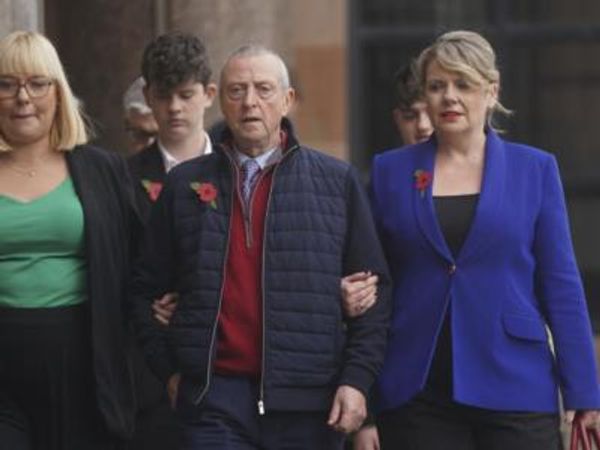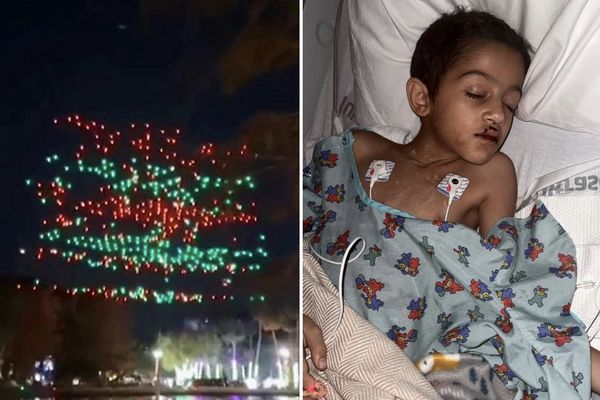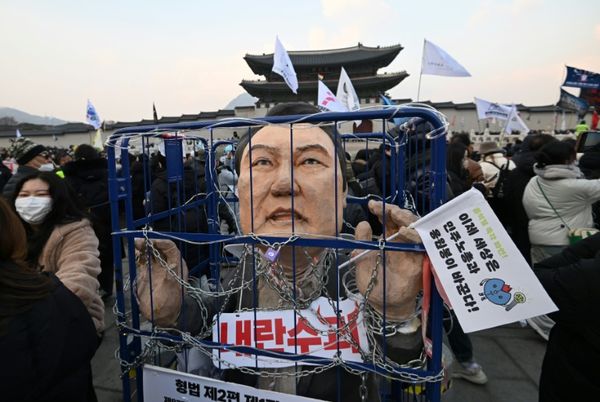
Mogadishu (AFP) - The death toll from a devastating 30-hour siege by Al-Shabaab jihadists at a hotel in Somalia's capital Mogadishu has climbed to 21, Health Minister Ali Haji Adan said Sunday, as anxious citizens awaited news of missing relatives.
The gun and bomb attack by the Al-Qaeda-linked group on the popular Hayat hotel caused parts of the building to collapse, with many people feared trapped inside since the assault began on Friday evening.
"The ministry of health has so far confirmed the deaths of 21 people and 117 people wounded," 15 of them seriously, Adan said.
Emergency workers and bomb disposal experts made their way through the heavily damaged hotel on Sunday, looking for any explosives and removing rubble as security forces patrolled the area.
Police commissioner Abdi Hassan Mohamed Hijar told reporters on Sunday that "106 people including children and women" had been rescued during the siege, which ended around midnight.
As bullets and flames ripped through the hotel, security forces searched the property to bring civilians to safety, including three young children who hid inside a toilet.
"The casualties mostly happened in the early hours of the attack, after that security forces spent time rescuing people individually and room by room," Hijar said.
The attack was the biggest in Mogadishu since Somalia's new President Hassan Sheikh Mohamud took office in June, and underscored the challenge of trying to crush the 15-year insurrection by the Islamist group.
'Like an earthquake'
Dozens of people arrived at the hotel premises on Sunday morning, desperate for news of their family members.
"It is like the devastation after a high-magnitude earthquake...You can only see damaged columns standing in most parts," said nurse Sadik Ahmed, who lost his uncle in the attack.
"My uncle was killed in the reception area; he had gunshot wounds."
The hotel was a favoured meeting spot for government officials and scores of people were inside when a suicide bomber triggered a massive blast, forcing his way onto the premises along with heavily-armed gunmen.
Minutes later, a second explosion struck as rescuers, security forces and civilians rushed to help the injured, witnesses said.
Civil servant Abdifatah Mohamed told AFP he had just sat down with a friend and ordered a cappuccino when he heard a deafening explosion, followed by gunfire.
"The gunmen directly went towards the lobby area in the main building where they were randomly shooting people," he said, narrating the harrowing ordeal.
He managed to find shelter near the toilets along with a dozen other people before being rescued 40 minutes later.
Somalia's allies, including the United States, Britain, the European Union and Turkey, as well as the UN, strongly condemned the attack, as did ATMIS, the African Union force tasked with helping Somali forces take over primary responsibility for security by the end of 2024.
Earlier this month, Washington announced its forces had killed 13 Al-Shabaab operatives in an air strike, the latest since President Joe Biden ordered the re-establishment of a US troop presence in Somalia, reversing a decision by his predecessor Donald Trump.
'Audacious attack'
Samira Gaid, executive director of the Hiraal Institute, a Mogadishu-based security think tank, told AFP that the "audacious attack" was a message to the new government and its foreign allies.
"The complex attack is to show that they are still very much present, very relevant and that they can penetrate government security and conduct such attacks."
The key "difference between this attack and previous ones is the length of the siege and how long it took for security forces to contain the situation," she said.
"The length of the siege has been very traumatising," even for a city that is regularly targeted by Al-Shabaab.
Mohamud said last month that ending the insurgency required more than a military approach, but that his government would negotiate with the group only when the time was right.
Somalia is also battling a looming famine, with the region's worst drought in 40 years leaving nearly half the country's population of 15 million at risk of starvation.
Al-Shabaab spokesman Abdiaziz Abu-Musab said Sunday that the group had killed more than 40 people during the hotel siege.
The jihadists have carried out several attacks in Somalia since Mohamud took office, and last month launched strikes on the Ethiopian border.
The militants were driven out of Mogadishu in 2011, but still control swathes of countryside and retain the ability to launch deadly strikes, often targeting hotels and restaurants.
The deadliest attack occurred in October 2017 when a truck packed with explosives blew up in Mogadishu, killing 512 people.







